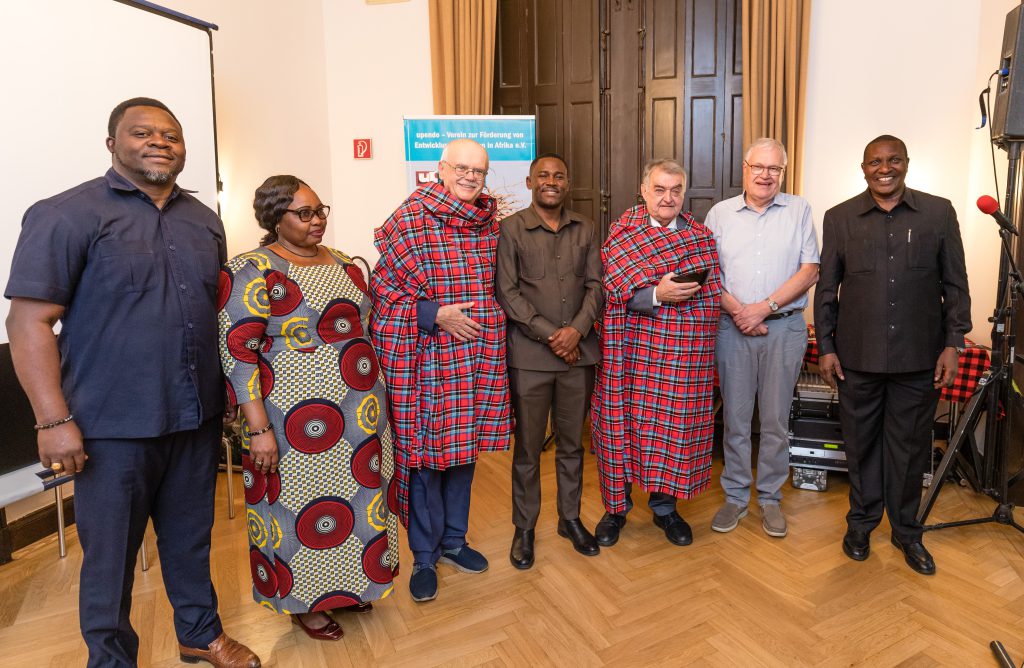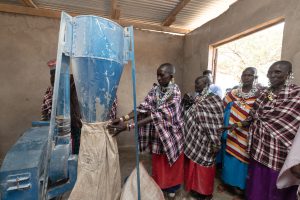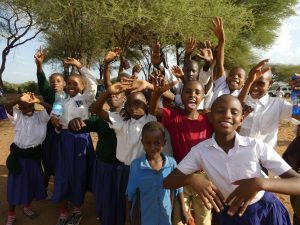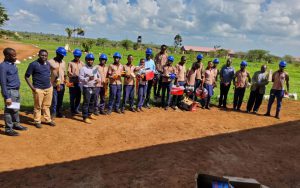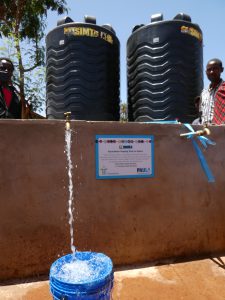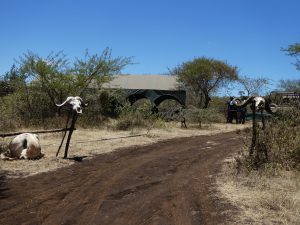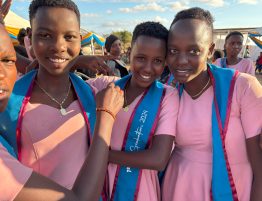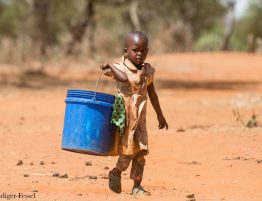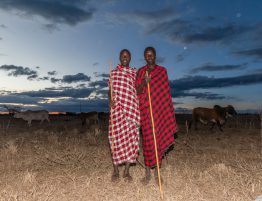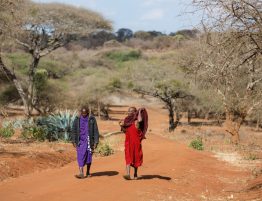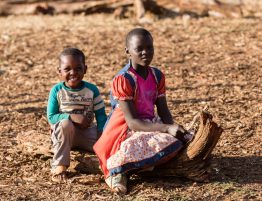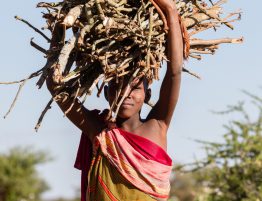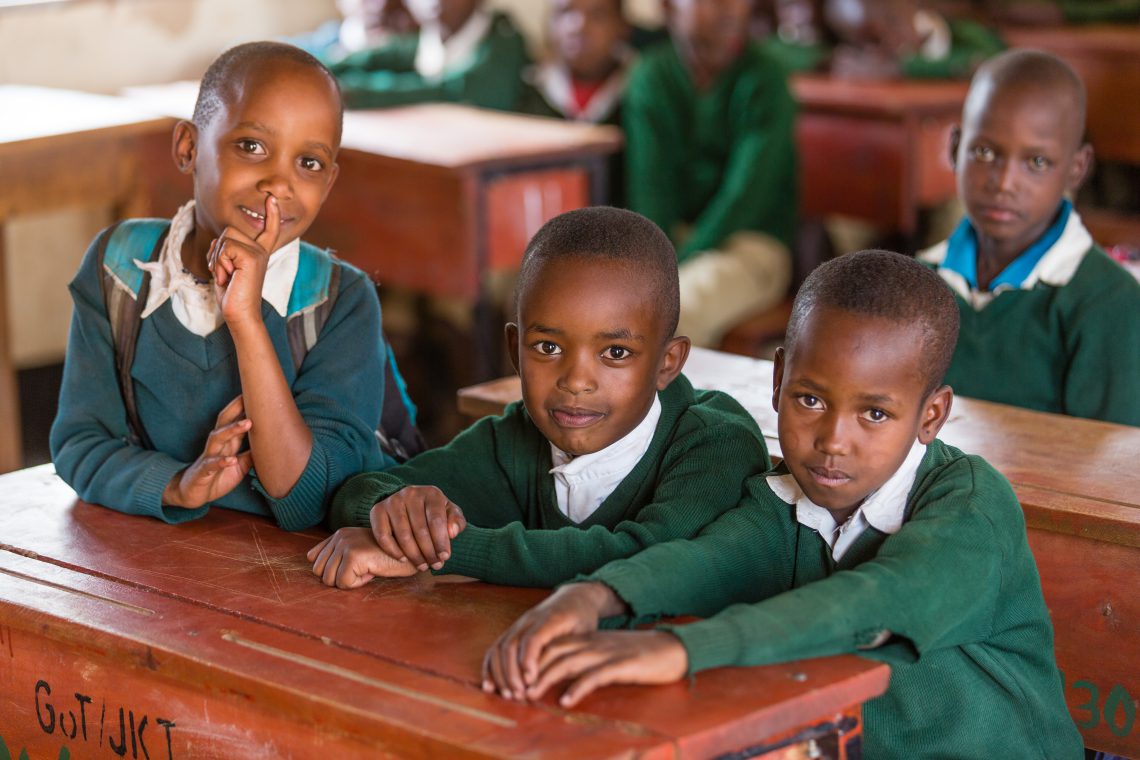
The efforts of upendo are bearing fruit
We have now been working with our Tanzanian partner organisation ECLAT in northern Tanzania for a decade. We are grateful that our support for community development is having a lasting impact and is making a positive difference to the lives of many people – especially children and women. The family planning campaign has been very successful. More and more villages are approaching ECLAT to organise family planning campaigns for them as well. In 2023, it was possible to hand over a further 10 primary school projects to the Tanzanian government. The district administration’s statistics on school attendance show that the proportion of school-age children not attending school has fallen significantly: from an estimated 70% to 28% (2022). We too have been able to make a contribution to this over the years. Our environmental and nature conservation projects, as well as the water projects, have a lasting impact on Maasai society. Meetings of women’s groups are now a matter of course and their economic activities are now accepted. This is visible everywhere in the villages. Women’s work was supplemented in 2023 by a new pioneering pilot project for teenage girls.
Greeting from Mr Minister Reul, patron of upendo

Dear members, supporters and friends of upendo,
Over the years, your association has really grown together with the Tanzanian partner organisation ECLAT. As patron, I was able to personally experience how close this connection has become in September 2023, when I welcomed a delegation from Tanzania to my home town of Leichlingen and had the opportunity to get to know them. During the discussions, I learnt what had been achieved for the people of Tanzania in 2023:
The ten newly built primary schools were praised and the intensified education of young people in the area of environmental protection was addressed. The counselling sessions on family planning and the economic involvement of women were also discussed.
I particularly remember the support for the Maasai girls – a great project. Whereas in the past, marriage was usually the only option to secure their future, they can now enter the world of work – thanks to a two-year craft course at the seminar centre. Completely new prospects are opening up for these girls – prospects that, without upendo, might not have materialised until many years later, if at all.
Dr Heimbach, as Chairman of the Board, the association members and supporters demonstrate their passion and commitment to the project anew every year. I would like to thank you for this commitment – for years now you have been creating prospects for the generations of tomorrow!
Sincerely
Yours
Herbert Reul MdL
Our organisation
Upendo was founded in 2014 with the aim of promoting community development in remote and disadvantaged societies. The partner organisation is the ECLAT Development Foundation, in which local people and those familiar with their culture help to develop their society. The Board of Directors consists of Dr. Fred Heimbach (Chairman), Matthias Schmid (Deputy Chairman) and Joachim Buchmüller (Treasurer).
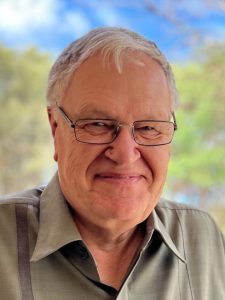
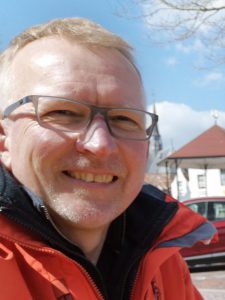
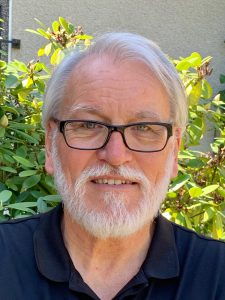
Where does upendo work ?
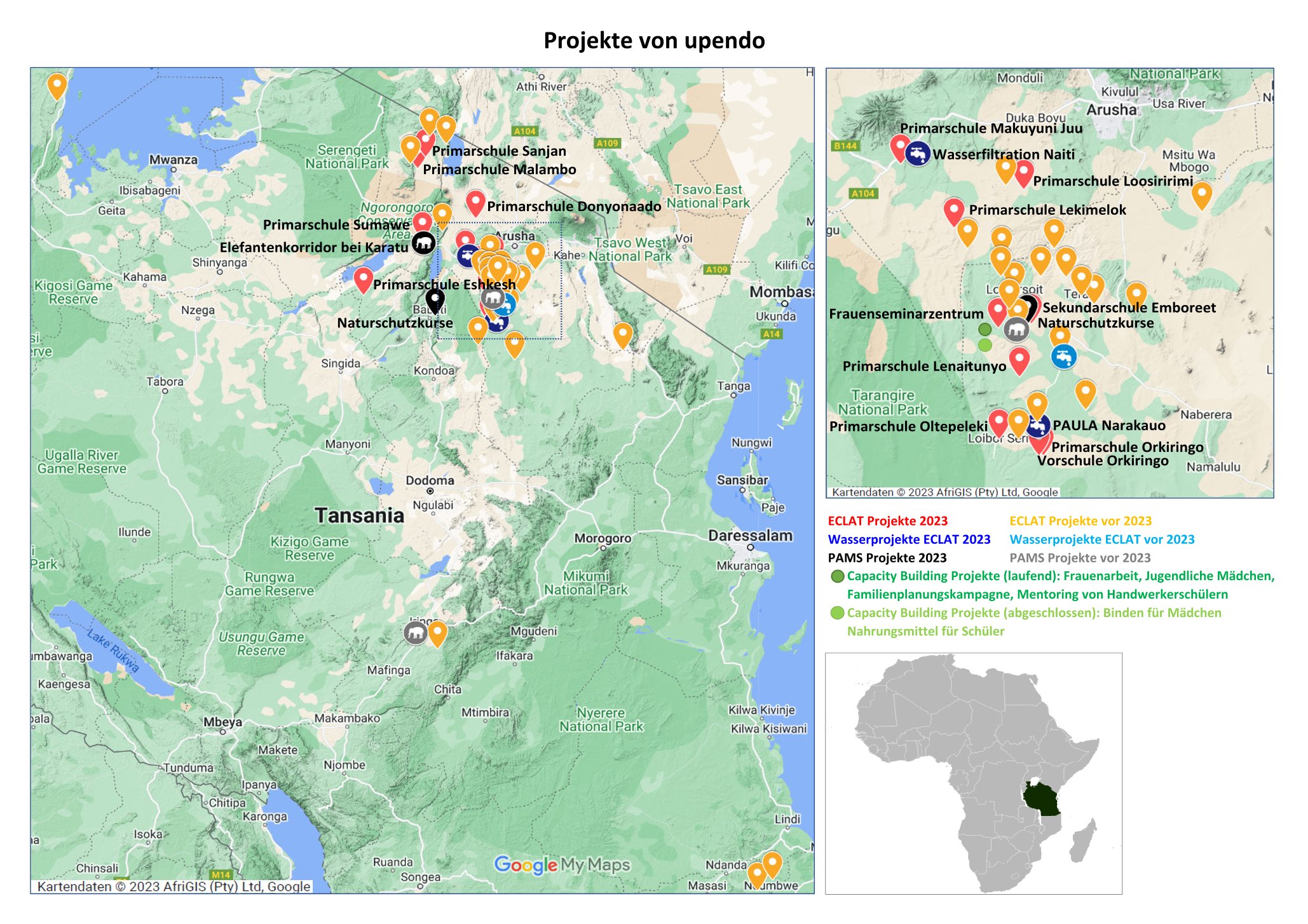
Insights into ECLAT’s and upendo’s development projects in Tanzania: My personal experiences
During my second project trip to ECLAT, I once again had the privilege of experiencing the diverse projects of this great organisation at first hand. From 27 September to 1 October 2023, I immersed myself in the world of ECLAT and upendo together with Julia Ilse from the Foundation for Care and Education. A very special thanks goes to Philomena and Toima Kiroya, as well as the entire ECLAT team, for their wonderful hospitality and the in-depth programme of visits and explanations about Maasai culture and the various projects. Their support was invaluable and made our visit an unforgettable experience.
In this report I would like to focus on the impressive family planning and women’s projects. The Maasai traditionally have more children than many other societies due to a variety of social, cultural and economic factors. The topic of family planning is little known and is resisted by traditional Maasai. It is therefore of great importance to raise people’s awareness of the need for family planning and the availability of contraceptives. These projects make an important contribution to strengthening the health of mothers and children, to improving their educational opportunities and to the economic stability of families.
The family planning campaigns led by Toima respect the Maasai culture and utilise their communication channels. We were able to take part in one such campaign with several hundred participants. Singing and dancing were used to provide background information on family planning – a colourful and culturally rewarding highlight for us. An employee of the local health centre explained the possibilities of contraceptives, which the Tanzanian state provides free of charge.
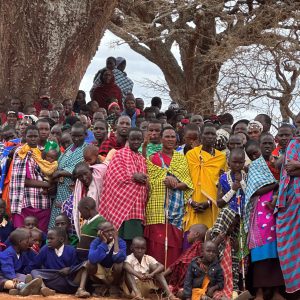
The singing and dancing was occasionally interrupted by tribal elders who gave their approval to the project and who are invaluable in initiating cultural change. ECLAT shows a sensitive approach and chooses paths that are beyond traditional development aid. Everything is considered and thought through knowing that change processes take years. Without the sustained commitment of Toima and Philomena as well as upendo with the experienced Fred Heimbach, such a project would not be possible.
Another highlight of our trip was our visit to the ECLAT Women Training and Development Centre. There, too, we were warmly welcomed and looked after with great dedication. The many ECLAT women’s groups are trained at this centre. At the moment, however, it is mainly young girls who are given vocational training there: some in tailoring, others in cookery. The girls have dropped out of the school system and have no other chance among the Maasai than to be married at an early age. They have children when they are teenagers and have no opportunity to earn their own income. They are not permitted to make decisions about their personal lives and are dependent on the weal and woe of their husbands, who often have further wives. Education is therefore invaluable for these girls. They are given the opportunity to break this eternal cycle and take their lives in their own hands. Philomena and Catherine Maguzu provide them with very caring support. In addition to professional skills, they also learn the skills they need to lead an independent life.
These personal experiences have strengthened my conviction that upendo is bringing about profound positive changes in Maasai society. The combination of cultural integration and practical support helps to make a lasting improvement to the lives of the local people. I am infinitely grateful to be part of this wonderful journey and the upendo family.
Rebecca Trienekens-Domrös
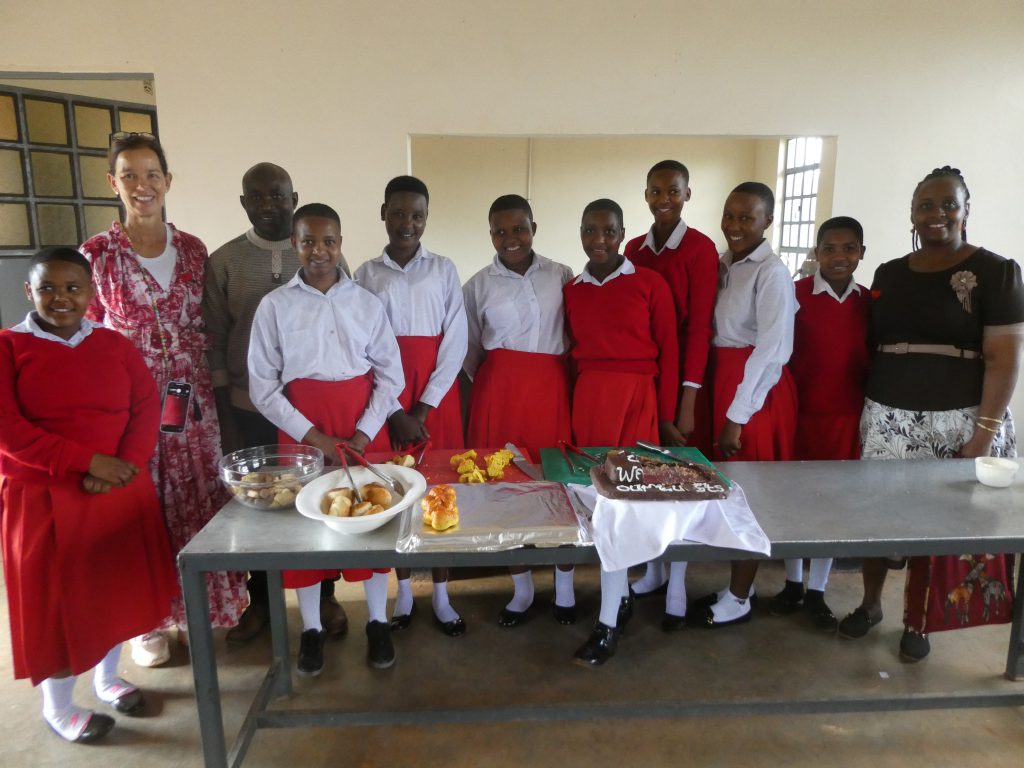
Our commitment to school education
From the very beginning, we have been committed to building schools, especially in Simanjiro and the neighbouring districts. To date, a total of 40 primary schools have been rebuilt, extended or newly constructed, even if some of the new schools still need to be completed. We estimate that this has enabled around 25,000 children to attend school (in better conditions). And our commitment is bearing fruit: according to the census of August 2022, the population in Simanjiro has roughly doubled to almost 300,000 people since the last census in 2002. Of course, this particularly affects the number of children. While just a few years ago, more than 70% of school-age children were not attending school, in 2022 the corresponding figure was only 28%. Our regular visits to schools also confirm this trend: initially we were shocked to see 60 or 70 children in a classroom, now there are often 100 children or more in a room. The reasons for the significant improvement in school attendance are manifold and cannot be attributed solely to our commitment, but our efforts are making a significant contribution. The figures confirm our efforts and give us hope. At the same time, however, they encourage us not to lose momentum.
At the secondary school in Emboreet, which we built over several years, over 800 children are now attending, even though the school was originally planned for just 320 children. The school is well equipped with science classrooms, a library and a computer centre, and the academic success of the pupils is high. The school was the first school in the entire district to offer A-levels. Only since 2022 have two further secondary schools in the district offered A-level education.
And the Tanzanian state (VETA) is now also offering young people craft training at the craft centre we have built in recent years.
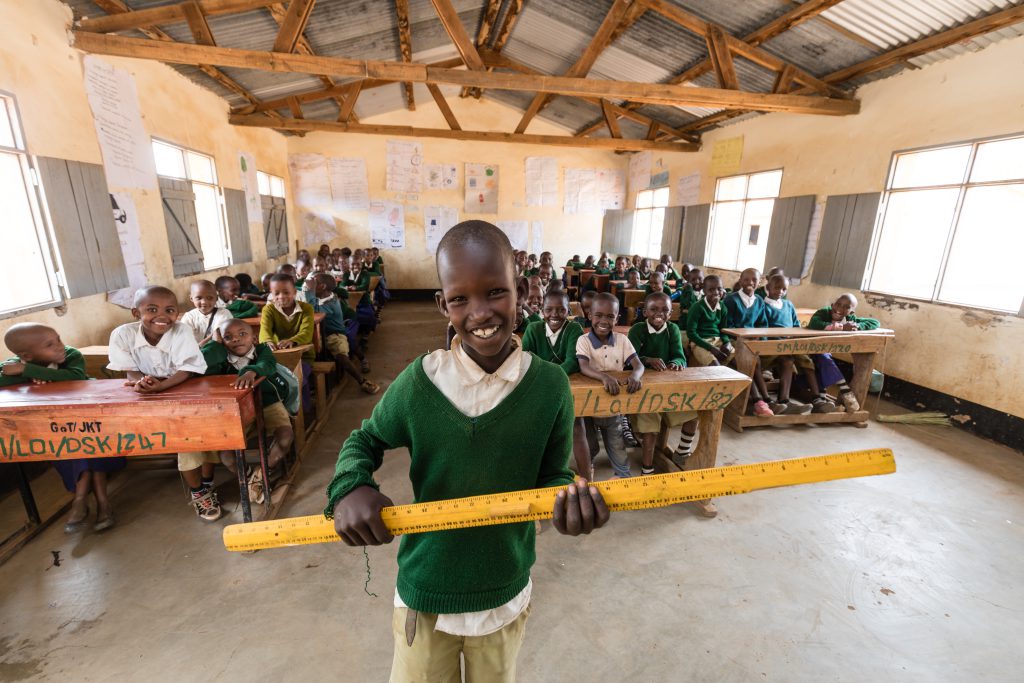
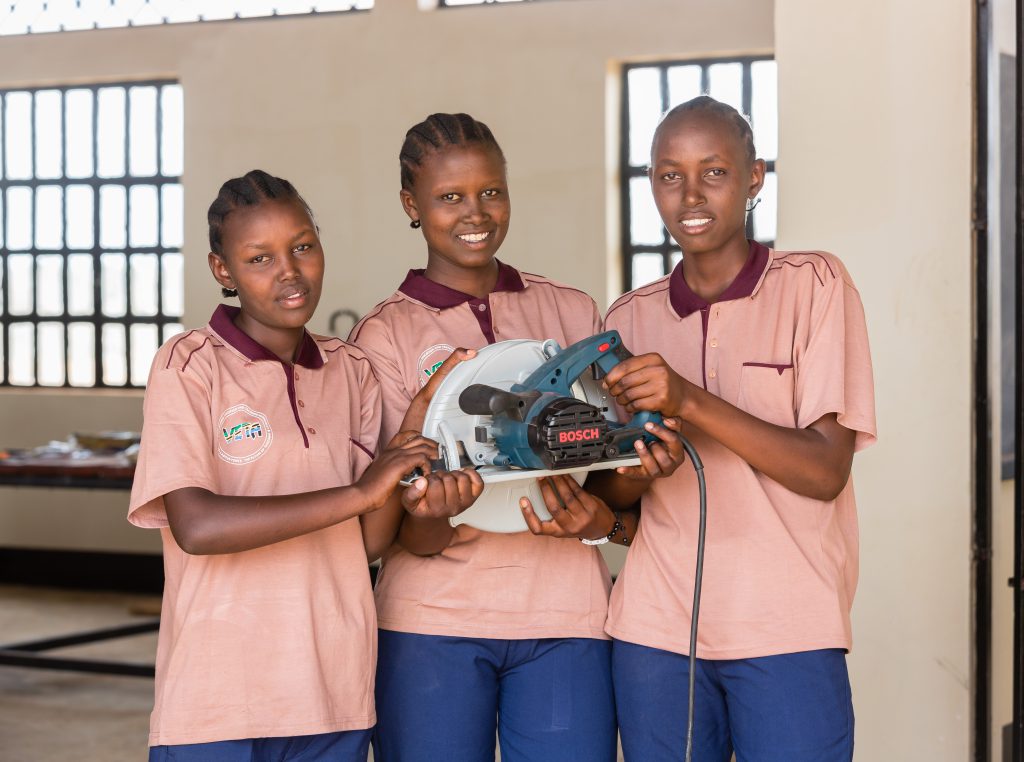
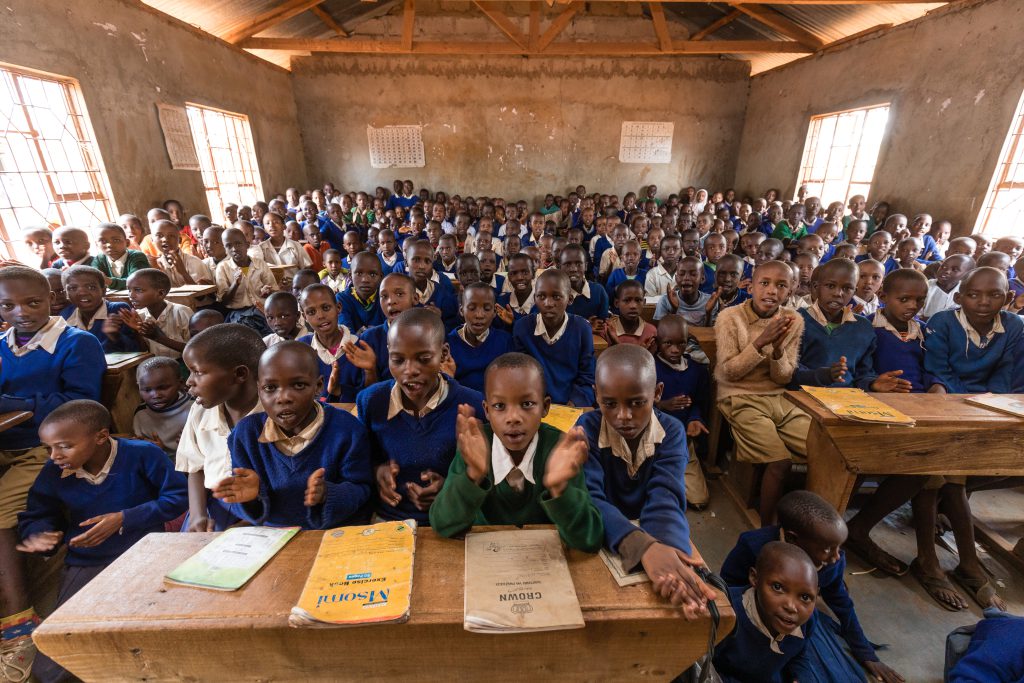
Message from the headmistress of the secondary school
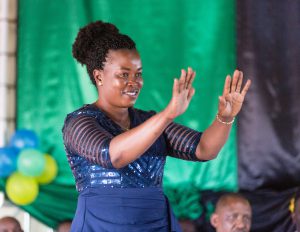
On behalf of the school and the community, I would like to thank you for the financial support you have given us for the construction of our school. You have done a great job and constructed many buildings, such as the large dining hall with tables, chairs and an audio/video system. In addition, classrooms, laboratories, teachers’ houses, dormitories, a library and a computer laboratory, latrines, washrooms, solar and biogas plants were built and books and laboratory equipment were purchased. Thanks to the good infrastructure, the number of pupils is increasing from year to year. In 2010 there were only 98 pupils, today there are over 800. Many of our pupils are already studying at colleges and universities.
Thanks to the computer lab, we can offer computer science as a school subject, use projectors in lessons and the pupils learn how to get more information using the internet. All teachers live in good houses on the school grounds, they do not have long distances to move and can offer their families a safe living environment. Thanks to the dormitories, all students can live on the school grounds, they can learn together and become a community. The school is the only secondary school in the area. All children from the primary schools come to us after their final exams. The fencing around the school grounds also ensures the security of the school, as visitors and pupils all have to pass through the main gate. In addition, no wild animals or grazing animals can enter the school grounds.
All in all, you have done a great job. You have created a supportive and attractive environment that facilitates peaceful interaction and creates good conditions for successful learning. We are happy to have this school, which we want to use intensively as well as maintain. On behalf of the school, the community and the whole country, I would like to thank you very much for this great school that you have made possible for us. THANK YOU SO MUCH!
Aziza Msengesi, Headmistress
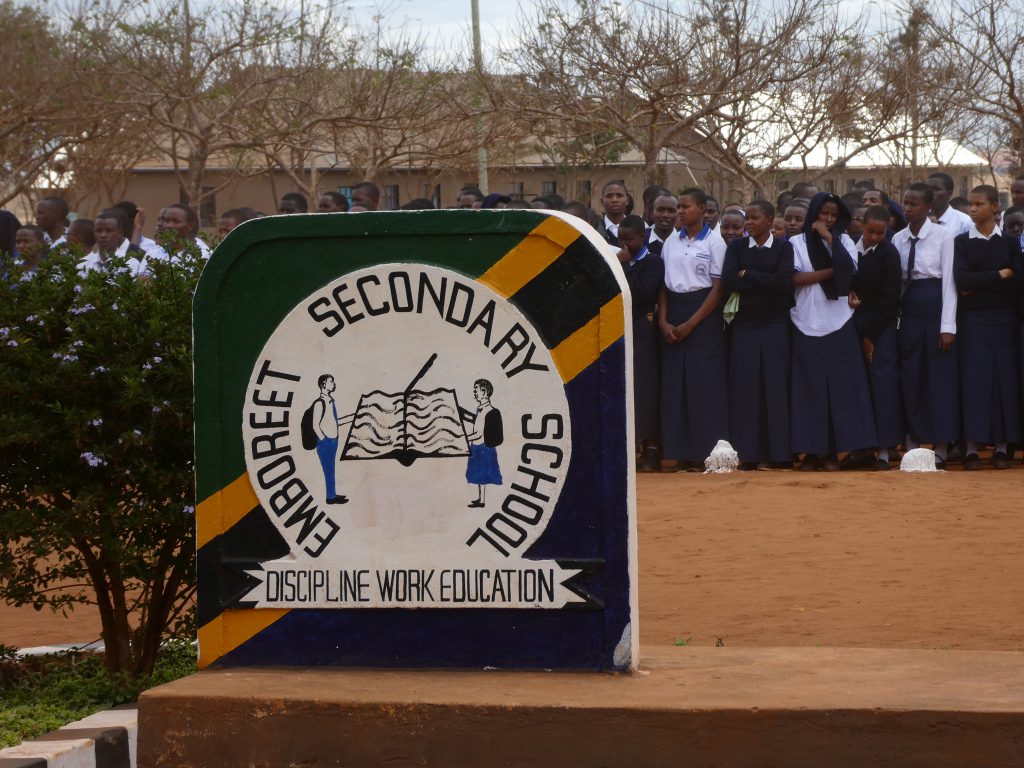
ECLAT’s work with women
The results of ECLAT’s women’s work cannot be summarised in simple numbers, but they can be observed: women’s groups meet everywhere these days, they have and earn their own income, they meet with guests from Europe and when discussing sensitive women’s issues, they simply send the men present away, be it the village or ECLAT chairperson. None of this would have been conceivable in the early years of our work. At the first meetings with women’s groups a few years ago, the same number of sceptical men sat nearby, suspiciously observing every discussion and in the end claiming that it would be better to form men’s groups.
Our most recent project offers an alternative to early forced marriage for teenage girls who have gone to school but do not qualify for further education after completing primary school (year 7). In a two-year course, they are taught the knowledge and skills that will enable them to become more self-reliant in later life and earn their own living.
Family planning
Among the Maasai, the men are proud of the large number of children they have. However, bringing up the children is the exclusive responsibility of the women, who are barely able to feed and care for their many children. For this reason, family planning campaigns which are primarily aimed at the men are organised in the local villages together with the traditional leaders. As the government provides family planning resources free of charge, ECLAT also works together with the health centres. Couples can obtain family planning supplies there. The campaigns are very well received. Many people seek counselling and treatment. More and more villages are approaching ECLAT to organise family planning campaigns for them too, which is far more than ECLAT can currently manage.
Mentoring trainee craftsmen
At the Vocational Training Centre, young people from the district learn the masonry, carpentry and locksmith trades, both boys and girls. We built the centre, which is run by the Tanzanian government (VETA). But we are staying with it: in a mentoring programme, ECLAT advises the trainee craftsmen on how to set up a start-up and run a successful business after their training.
Water projects
The fact that a good, reliable supply of clean potable water is a fundamental human right shows how important it is for a society. In an environment as arid as the Maasai steppe, people experience this necessity all the more keenly. In place of the water filtration plant in Sukuro we were able to open the well project at the beginning of 2023; together with the two water filtration projects in Narakauo and Naiti this will provide the inhabitants of the villages with a greater supply of clean drinking water. They come to the taps and fetch hygienically clean water for themselves and their families.
Protecting nature and the environment with the PAMS Foundation
Last year, we were able to continue the project to protect the elephant corridor at the Ngorongoro Crater together with the PAMS Foundation. People will only accept nature conservation and national parks if they do not feel threatened by wild animals such as elephants. Environmental education at secondary schools on the border of Tarangire National Park has also been continued. There, pupils learned about the importance of protecting nature and animals, planting trees, and visiting the neighbouring national parks. In this way, they will learn to appreciate their homeland and can later become involved in its conservation.
Income from upendo in 2023
upendo would like to thank all those who support our work in whatever form, also on behalf of the people concerned in Tanzania. Special thanks for the support provided for upendo in accordance with the 2023 cash report go to the Circle of Friends and the following organisations:
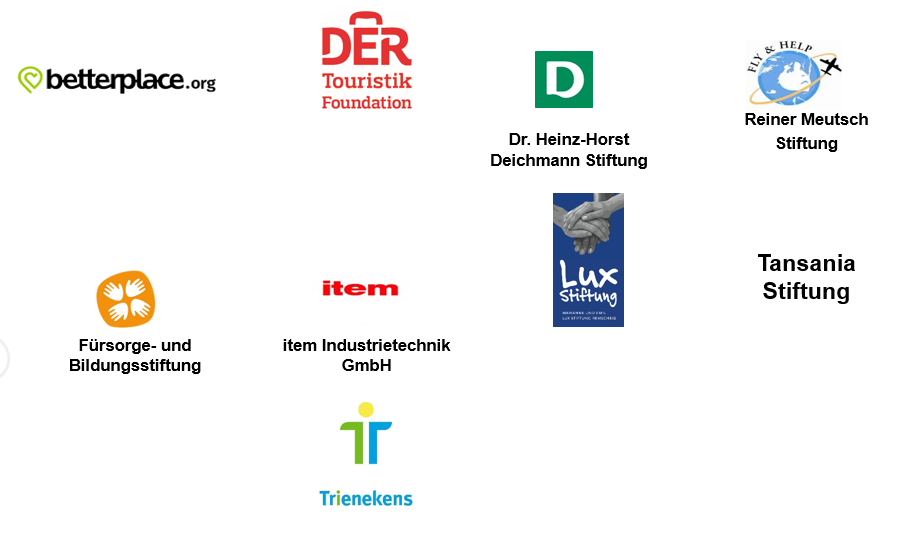
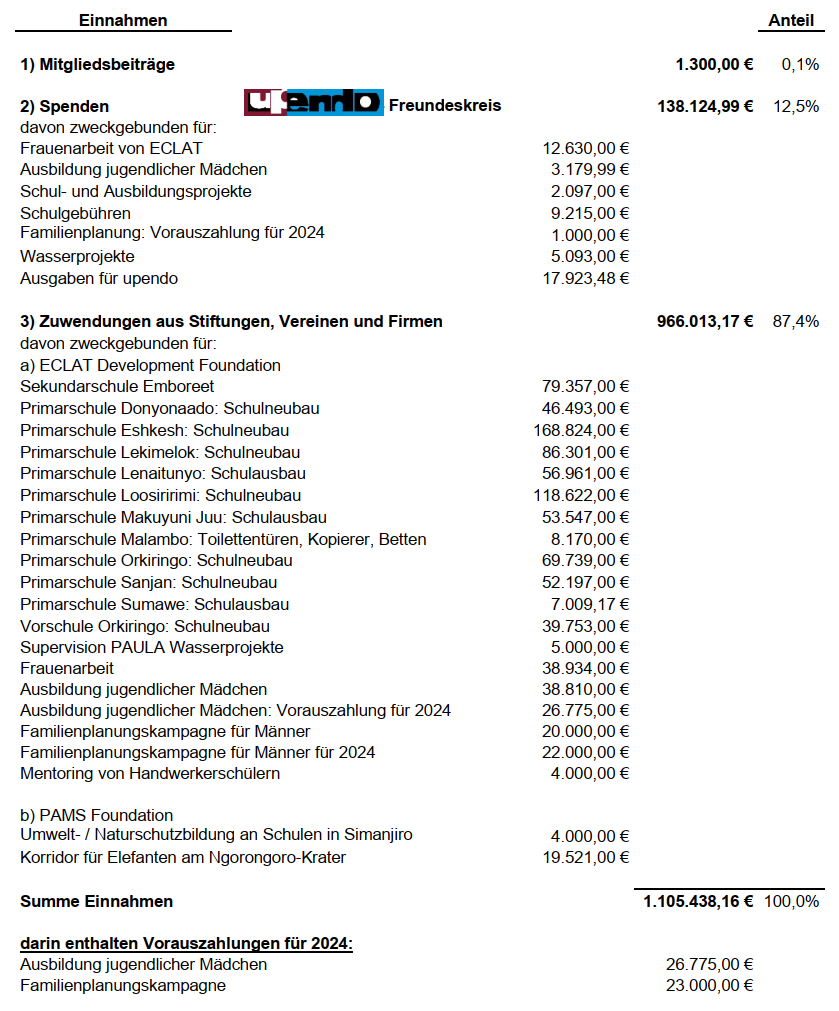
Expenditure of upendo in 2023
Upendo had the following expenses for the realisation of the projects in Tanzania according to the cash report 2023:
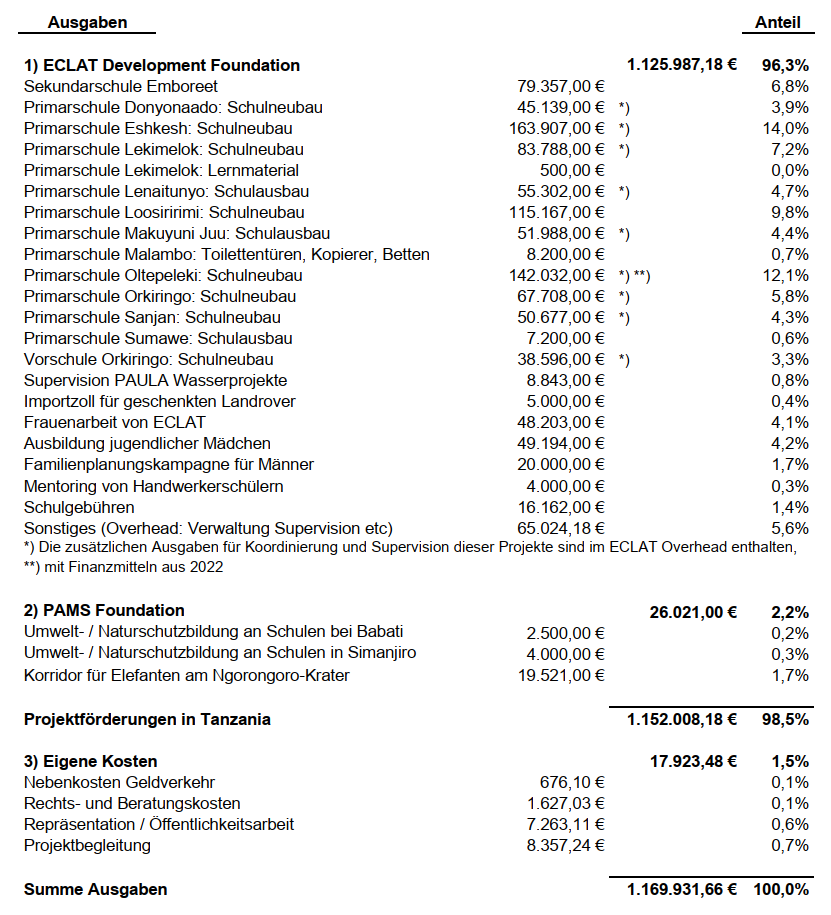
Transparency is a key issue for upendo. Our annual cash reports are subject to an external audit by the independent external tax consultancy JC Junga Consulting GmbH in Solingen. The records on which the 2023 upendo annual cash report is based were also examined by the same tax consultancy and checked to ensure they were compliant. In a letter dated 25 February 2024, the tax consultancy firm JC Junga Consulting GmbH certified the accuracy of upendo`s cash report for 2023, which is also published on our website ( About us / Finances ) with details of the cash balance at the beginning and end of 2023.
Information event 2023
On 16 September 2023, we were once again able to report on our work to our friends in an information event. The District Commissioner of Simanjiro District, Dr Suleiman Serera, and the District Executive Director Gracian Makota were in Germany at the time and commented on our work from the perspective of the Tanzanian government. Toima Kiroya, head of our partner organisation ECLAT, presented the projects and their background. The guest of honour at the event was the patron of upendo, Minister Herbert Reul. Many of our friends received an in-depth and impressive report that afternoon about our work in Tanzania, its level of acceptance in the country and its far-reaching effects.
